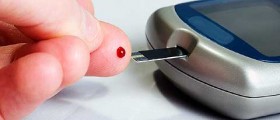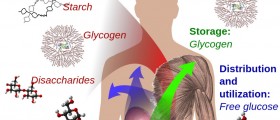
When we discuss etiology of certain disease we actually investigate the cause of the disease or the factors that contribute to its occurrence. This very word-etiology is commonly used in medicine and it refers to the study why particular phenomenon (in this case illness) occurs.
In case of diabetes there are several factors which contribute to the occurrence of the disease. Since there are two types of diabetes, type 1 diabetes and type 2 diabetes, their etiologies are somehow different. Even though there is a difference between the etiology of diabetes type 1 and diabetes type 2 both of the conditions feature with the same symptom, increase in level of sugar in the blood.
Etiology of Type 1 Diabetes
Type 1 diabetes is also known as childhood or juvenile diabetes. This is insulin dependent diabetes and it requires regular intake of insulin, a hormone produced by the pancreas. Type 1 diabetes develops as a consequence of autoimmune illness in which the insulin producing beta cells of the pancreas are totally destroyed by auto antibodies. The scientists believe that mutual effects of immunological factors as well as genetic and environmental factors are important for the disease to develop. Diabetes type 1 is a polygenic disease which means that there are many genes involved in the process. The most important and strongest gene is IDDM1, located in the MHC class II region of the 6th chromosome. This particular gene is blamed for the histocompatibility disorder, a characteristic of type 1 diabetes.
Etiology of Type 2 Diabetes
Type 2 diabetes commonly affects older individuals. This is non-insulin dependent diabetes. The major problem in type 2 diabetes is not lack of insulin but the resistance of the insulin receptors.
There are many factors associated with type 2 diabetes. One of them is obesity. It is estimated that 55% of all patients suffering from type 2 diabetes are obese. Two more factors which may contribute to the occurrence of type 2 diabetes are elevated blood pressure and increased levels of cholesterol in the blood (usually accompanied by hyperlipidemia).
Apart from the previously mentioned type 2 diabetes may be connected to certain illnesses such as acromegaly, Cushing's syndrome, thyrotoxicosis, chronic pancreatitis, pheochromocytoma etc. The condition may be also induced by some medications (atypical anti-psychotic drugs, beta blockers, calcium channel blockers, corticosteroids etc).
The risk of type 2 diabetes increases in older people and those with poor eating habits (diet rich in fats). Sedentary lifestyle and lack of physical activity are other potential causes of type 2 diabetes. And finally, even this type of diabetes may be genetically induced.

















Your thoughts on this
Loading...